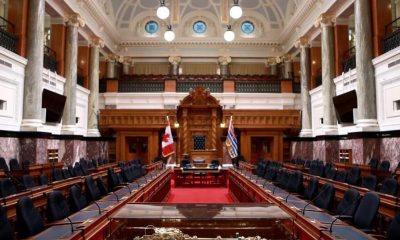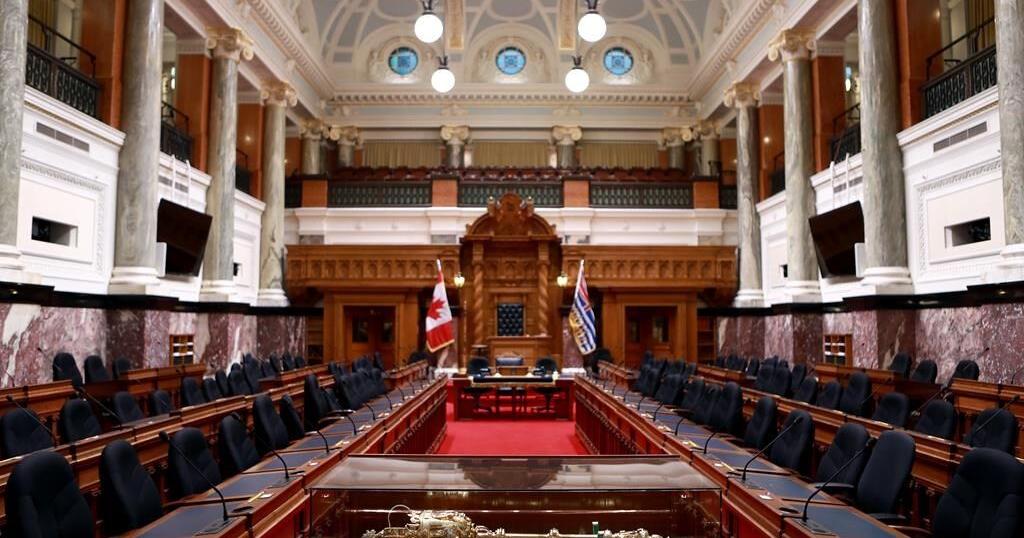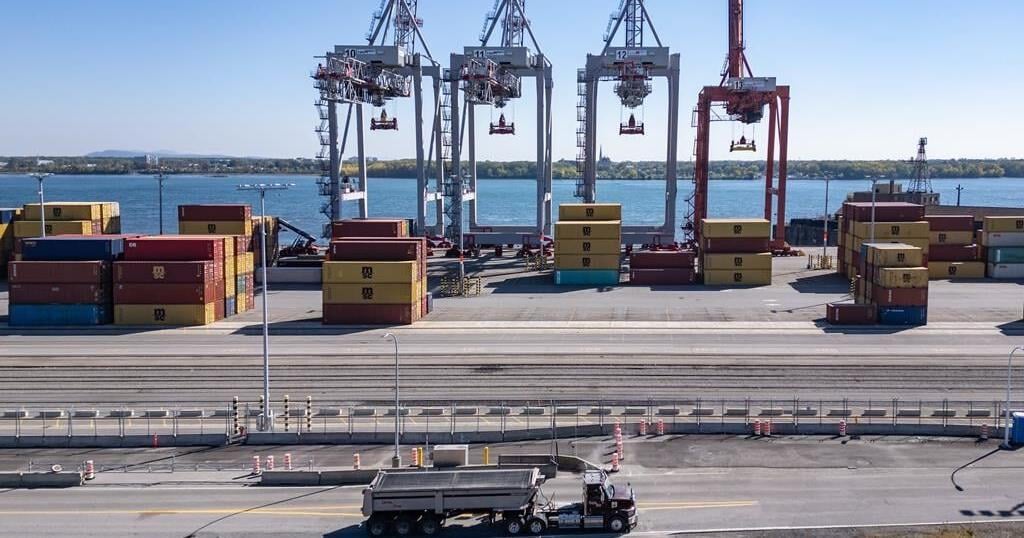OTTAWA, W.Va. – U.S. president-elect Donald Trump’s promise launch a mass deportation of millions of undocumented immigrants has the Canadian government looking at its own border.
Deputy Prime Minister Chrystia Freeland said Friday the issue is one of two “points of focus” for a recently revived cabinet committee on Canada-U.S. relations.
Freeland said she has also been speaking to premiers about the issue this week.
“I do want Canadians to know it is one of our two central points of focus. Ministers are working hard on it, and we absolutely believe that it’s an issue that Canadians are concerned about, Canadians are right to be concerned about it,” Freeland said, after the committee met for the first time since Trump left office in 2021.
She did not provide any details of the plan ministers are working on.
Public Safety Minister Dominic Leblanc, whose portfolio includes responsibility for the Canada Border Services Agency, co-chairs the committee. Freeland said that highlights the importance of border security to Canada-U.S. relations.
There was a significant increase in the number of irregular border crossings between 2016 and 2023, which the RCMP attributed in part to the policies of the first Trump administration.
The national police service said it has been working through multiple scenarios in case there is a change in irregular migration after Trump takes office once again, and any response to a “sudden increase in irregular migration” will be co-ordinated with border security and immigration officials.
However, Syed Hussan with the Migrant Rights Network said he does not anticipate a massive influx of people coming into Canada, chalking the current discussion up to anti-migrant panic.
“I’m not saying there won’t be some exceptions, that people will continue to cross. But here’s the thing, if you look at the people crossing currently into the U.S. from the Mexico border, these are mostly people who are recrossing post-deportation. The reason for that is, is that people have families and communities and jobs. So it seems very unlikely that people are going to move here,” he said.
Since the Safe Third Country Agreement was modified last year, far fewer people are making refugee claims in Canada through irregular border crossings.
The agreement between Canada and the U.S. acknowledges that both countries are safe places for refugees, and stipulates that asylum seekers must make a refugee claim in the country where they first arrive.
The number of people claiming asylum in Canada after coming through an irregular border crossing from the U.S. peaked at 14,000 between January and March 2023.
At that time, the rule was changed to only allow for refugee claims at regular ports of entry, with some specific exemptions.
This closed a loophole that had seen tens of thousands of people enter Canada at Roxham Road in Quebec between 2017 and 2023.
In the first six months of 2024, fewer than 700 people made refugee claims at irregular crossings.
There are 34,000 people waiting to have their refugee claims processed in Canada, according to government data.
In the first 10 months of this year, U.S. border officials recorded nearly 200,000 encounters with people making irregular crossings from Canada. Around 27,000 encounters took place at the border during the first 10 months of 2021.
Hussan said the change to the Safe Third Country Agreement made it less likely people will risk potentially dangerous crossings into Canada.
“Trying to make a life in Canada, it’s actually really difficult. It’s more difficult to be an undocumented person in Canada than the U.S. There’s actually more services in the U.S. currently, more access to jobs,” Hussan said.
Toronto-based immigration lawyer Robert Blanshay said he is receiving “tons and tons” of emails from Americans looking at possibly relocating to Canada since Trump won the election early Wednesday.
He estimates that about half are coming from members of the LGBTQ+ community.
“I spoke to a guy yesterday, he and his partner from Kansas City. And he said to me, ‘You know, things weren’t so hunky-dory here in Kansas City being gay to begin with. The entire political climate is just too scary for us,'” Blanshay said.
Blanshay said he advised the man he would likely not be eligible for express entry into Canada because he is at retirement age.
He also said many Americans contacted him to inquire about moving north of the border after Trump’s first electoral victory, but like last time, he does not anticipate many will actually follow through.
This report by The Canadian Press was first published Nov. 8, 2024




























